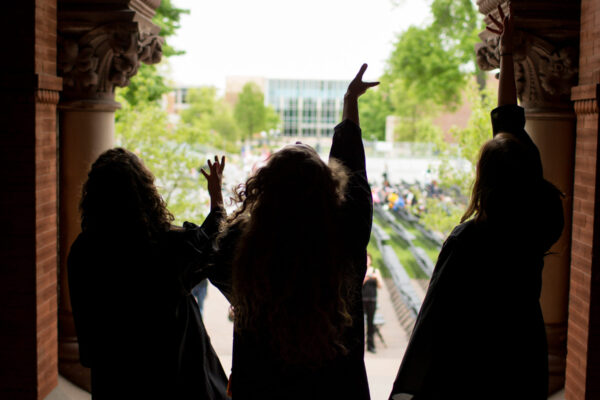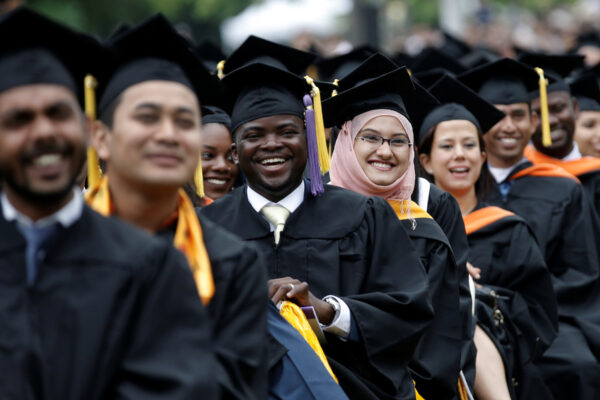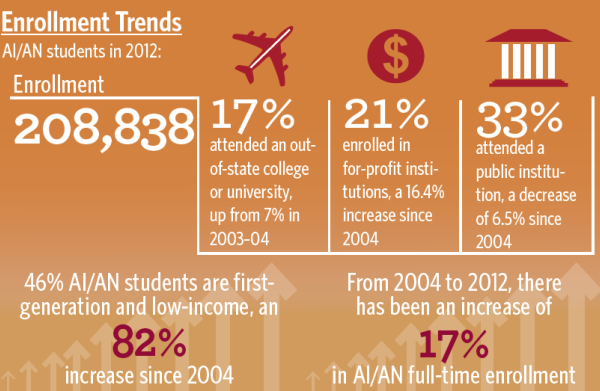By Charles M. Cook
This post is the fourth in a series from the Association of Chief Academic Officers.
In 2015, the Texas Higher Education Coordinating Board adopted a new Strategic Plan for Higher Education called 60x30TX. The intent of the plan is to ensure that, by 2030, at least 60 percent of Texans aged 25–34 would have a postsecondary certificate or degree. The message is that higher education will benefit the individual learner who will then qualify for a better job and wages as well as the society and economy at large. Each graduate will be a wage earner and taxpayer who has less need for governmental services, and will be better able to contribute to the civic life of the community. These are laudable goals, formulated during a period of time in which the value of higher education is receiving considerable scrutiny.
Perhaps in response to such scrutiny, the Texas Strategic Plan for Higher Education includes the goal that all graduates from Texas public institutions will have completed programs “with identified marketable skills.” The plan recognizes that this goal “challenges institutions to think more explicitly about the programs they offer and the job skills that students learn within those programs. . . . skills valued by employers that can be applied in a variety of work settings, including interpersonal, cognitive, and applied skill areas. These skills can be either primary or complementary to a major and are acquired by students through education, including curricular, co-curricular, and extracurricular activities” (22).
The 60x30TX goal of explicitly linking programs and “marketable skills” meshes nicely with the mission of Austin Community College (ACC) to promote “student success and community development by providing affordable access . . . to higher education and workforce training.” For academic transfer programs, the objectives of the Texas common core curriculum can be broadly defined as “marketable skills,” including such fundamental skills as critical thinking, communication, empirical and quantitative reasoning, teamwork, and a sense of both social as well as personal responsibility.
ACC academic programs have aligned with related student activities and clubs and have incorporated academic cooperatives and service learning for students to gain hands-on experience developing these skills. ACC workforce programs, consisting of certificates and applied degrees, prepare students more directly for employment, and require applications of marketable skills in job-related experiences such as co-ops, internships, apprenticeships, and clinical rotations.
Over the past five years, ACC has provided opportunities for students to develop an entrepreneurial mindset, perhaps the most marketable of all skills in an age of rapidly changing technology and uncertainty about how work will be transformed in the future. According to Bree Langemo, former president of the Entrepreneurial Learning Initiative, an entrepreneur is not simply someone intent upon founding a new business. She notes that “to find a place in the future workforce, graduates will need to align their interests, skills, and abilities with the needs of others to create value,” whether they start something new, work for others, or work as an independent contractor (7).
Langemo defines an entrepreneurial mindset as “the belief that it is our responsibility to leverage our interests, skills, and abilities to be useful to others” (15). She notes that we must provide students with opportunities to develop this mindset. She argues that in order to truly engage students, we must help them take ownership of their learning and ask them to solve problems that they and others truly care about.
ACC has had the good fortune to benefit from both state and city support in providing our students entrepreneurial opportunities. In 2015, ACC received a $4.9 million grant from the state of Texas to develop a Bioscience Incubator. At the time, Austin was lacking sufficient wet lab space for pharmaceutical and bioscience entrepreneurs to test drugs and medical devices. The ACC Bioscience Incubator was built with state-of-the art equipment at the ACC Highland Campus and opened in early 2017. Almost immediately, the wet lab space was occupied by a group of seven enterprises who were required to hire ACC biotechnology students as interns/technicians as part of their lease agreement. Students learn how to operate and care for the equipment, gain exposure in the art of fundraising, and gain hands-on skills in such projects as detecting and eradicating zebra mussels (a major problem in Austin area lakes) or developing a disposable bone marrow autograph system.
At the same time that the ACC Bioscience Incubator began operating, the college was approached by the city of Austin to partner in the development of the local fashion industry by supporting a fashion incubator. Austin is home to a growing number of designers, but they face difficulty and great expense in producing small lots of their designs to test the market. ACC donated the space at the Highland Campus, and the city assisted in the purchase/lease of $13 million worth of high-technology equipment by which designs are drawn on the computer. Computer programs are then sent to machines for the marking and grading of the fabrics. They then go to another machine to cut the fabrics for subsequent assembly. Students are not only learning the latest technology that supports fashion design, but also engaging with the technology associated with manufacturing.
Similar to the Bioscience Incubator, the Fashion Incubator is preparing studio space for designers to utilize the equipment and hire student interns to help assemble their products. The city of Austin is assigning small business experts to help the designers create new businesses for the region. Students are able to explore fashion design as well as fashion merchandising as possible careers in both credit and continuing education formats.
As the Highland Campus continues to develop, ACC has plans to create a Manufacturing Incubator, maker spaces for the fine arts and digital arts, a health science simulation center, a student-run restaurant, and project spaces for computer information technology students to work with local start-ups in developing new software and new aps.
The overall philosophy for the campus is to combine teaching and learning with the provision of opportunities for students to test new ideas and solve real world problems. In short, the college wants students to develop an entrepreneurial mindset as a marketable skill, regardless of their program of choice.
ACAO aims to enhance the effectiveness of CAOs by providing networking and professional development opportunities and engaging members in academic affairs issues that cut across the diversity of higher education institutions and missions.
aims to enhance the effectiveness of CAOs by providing networking and professional development opportunities and engaging members in academic affairs issues that cut across the diversity of higher education institutions and missions.
If you have any questions or comments about this blog post, please contact us.


